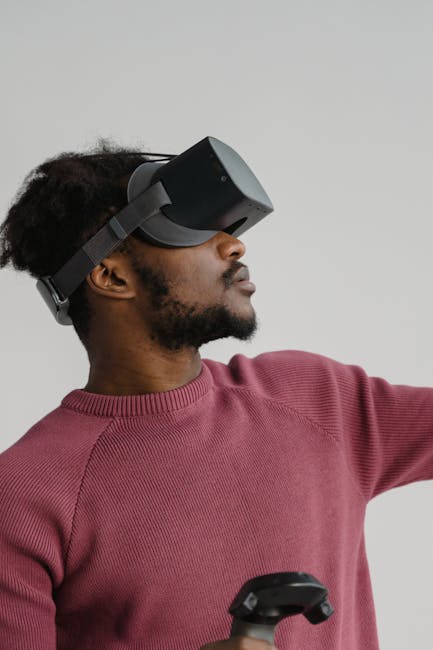VR AR Skill Testing
The Evolution of Trade Skill Assessment
Traditional skill testing for trade workers often involves costly physical simulations. Additionally, these setups can be dangerous for inexperienced candidates. Therefore, the industry needed a better solution. VR and AR skill assessment provides a dynamic alternative. For example, trainees can practice complex procedures repeatedly without material waste. Moreover, these digital environments track every movement for precise evaluation.
Core Benefits of VR and AR in Trade Testing
Immersive technology transforms how we measure proficiency in the trades. Firstly, it enhances safety by removing real-world hazards. Secondly, it increases accessibility and reduces costs. According to a National Institutes of Health study, VR training significantly improves performance retention compared to traditional methods.
Enhanced Safety in Hazardous Scenarios
Electricians can practice on live circuits virtually. Similarly, welders can hone their technique without sparks or extreme heat. Consequently, companies minimize workplace accidents during training.
Unprecedented Data and Analytics
VR systems capture granular data on user performance. For instance, they measure precision, speed, and technique. Therefore, evaluators receive objective metrics beyond a simple pass/fail.
Implementing Virtual Reality for Skill Testing
Successful implementation requires careful planning. Initially, organizations must define the specific skills to assess. Next, they develop realistic virtual environments. Companies like Interplay Learning create detailed simulations for various trades. Additionally, the NCCER explores integrating VR into their standardized assessments.
Augmented Reality for Real-Time Skill Evaluation
AR overlays digital information onto the physical world. For example, an apprentice plumber might see pipe schematics through AR glasses. Meanwhile, an instructor remotely views their perspective and provides feedback. This technology is particularly valuable for on-the-job training and assessment. Furthermore, it reduces the need for expert evaluators to be physically present.
Key Applications Across Major Trade Industries
Numerous industries already benefit from immersive assessments.
Electrical Trade VR Assessments
Virtual environments simulate complex wiring tasks. Trainees must identify faults and execute repairs. Importantly, they learn crucial safety protocols without risk.
Welding Skill AR Evaluation
AR systems project weld paths onto metal pieces. Subsequently, sensors track the welder’s torch movement and angle. This provides instant feedback on technique.
HVAC and Plumbing Simulations
Technicians practice installing and maintaining systems in virtual buildings. Consequently, they gain experience with numerous scenarios quickly.
Overcoming Challenges in VR AR Adoption
Despite the advantages, some barriers remain. Initially, the upfront cost of hardware can be significant. However, prices continue to decrease as technology advances. Additionally, some veteran tradespeople may resist new technology. Therefore, effective change management is crucial. For support, explore our Resources for implementing new tech.
The Future of VR AR Trade Skill Certification
Immersive technology will likely become standard for certification. For instance, licensing bodies may incorporate virtual assessments. Moreover, state agencies are already piloting these programs. The future includes AI-driven personalized learning paths based on performance data.
Measuring the ROI of Immersive Skill Testing
Companies report significant returns on investment. They save on material costs and reduce training time. Meanwhile, they see lower incident rates and higher workforce competency. A PwC study found VR learners trained four times faster than classroom learners.
Frequently Asked Questions
How accurate is VR AR skill testing for trade workers?
Extremely accurate. These systems track millimeter-level movements and provide objective data on technique, speed, and precision far beyond human observation.
What trades benefit most from VR AR assessment?
High-risk trades like electrical, welding, and industrial maintenance benefit tremendously. However, nearly all skilled trades can implement some form of immersive assessment.
Is VR AR skill testing recognized by certification bodies?
Yes, recognition is growing rapidly. Major organizations like NCCER and AWS are actively developing standards for virtual assessments.
What equipment is needed for VR trade skill testing?
Typically, a VR headset, motion controllers, and a capable computer. AR setups may require specialized glasses or tablets. Costs have decreased significantly in recent years.
Can VR simulations replace hands-on experience entirely?
Not entirely. While excellent for training and assessment, virtual reality should complement—not completely replace—actual hands-on experience with physical materials.
Conclusion: Embracing the Future of Trade Assessment
In conclusion, VR and AR skill testing represents a monumental leap forward for vocational education and certification. These technologies provide safer, more efficient, and highly accurate assessments. They offer objective data, reduce costs, and prepare workers for real-world challenges. Ultimately, embracing immersive technology is no longer optional—it’s essential for building a competent, safe, and future-ready workforce. Finally, contact us to discuss implementing these solutions or book an appointment with our experts today.




